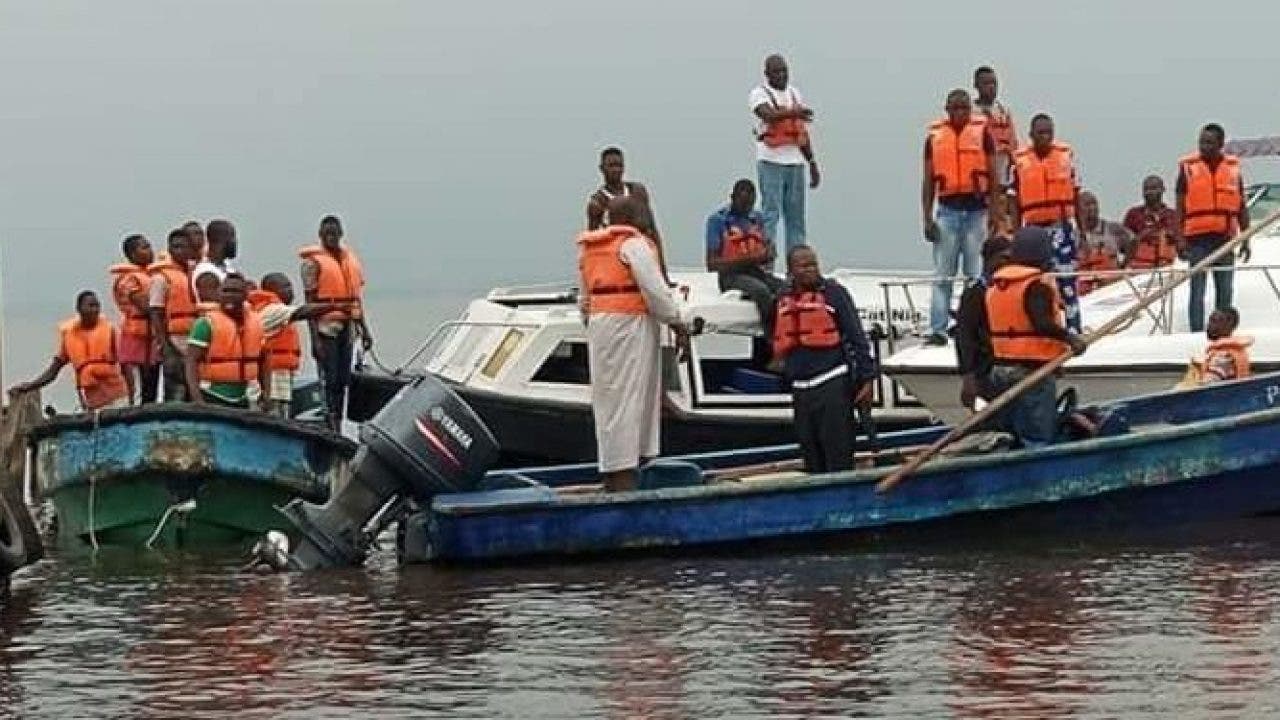Time to stop persistent boat mishaps
Recent incidents of boat mishaps pose significant risks to local communities that heavily rely on water transportation. The fatalities and injuries resulting from these accidents emphasize the urgent need for sustainable solutions. One major cause of boat mishaps is overloading, where boats and canoes exceed their recommended passenger and cargo capacity, leading to instability and […]

FILE PHOTO: Boat mishaps
Recent incidents of boat mishaps pose significant risks to local communities that heavily rely on water transportation. The fatalities and injuries resulting from these accidents emphasize the urgent need for sustainable solutions.
One major cause of boat mishaps is overloading, where boats and canoes exceed their recommended passenger and cargo capacity, leading to instability and accidents. For example, a recent mishap in Niger State in October 2024 involved a wooden boat carrying approximately 300 passengers, which capsized in the River Niger. Overloading makes it difficult for the boat to remain stable, especially in rough waters.
Adverse weather conditions such as heavy rainfalls, storms, and strong winds have also been identified as major factors in boat mishaps. Poor maintenance of boats used for transportation is another issue, as they are often old and poorly maintained, leading to structural defects that make them prone to sinking. Lack of life-saving equipment like life jackets and buoys further exacerbates the risks during accidents.
Inexperienced operators, operational errors, and lack of formal training also contribute to frequent accidents.
- Hardship: It’s time to review your policies, PDP BoT tells Tinubu
- Plus Wallet Redefines Crypto Management with its Fast Listings & Rewards System While WallitIQ & Token Unlocks Shake Up The Market
Data from various incidents paint a grim picture of the safety of water transportation in Niger State and across the North Central states. Significant lives have been lost in boat mishaps from 2017 to 2023, with tragic incidents like the one in Kwara in 2023 where over 106 wedding guests lost their lives in a capsized boat.
To address these issues, the Nigerian government, through agencies like the Nigerian Inland Waterways Authority (NIWA), should collaborate with state governments, local authorities, communities and other stakeholders to enforce regulations limiting passenger numbers on boats and mandating the use of life jackets. Regular vessel inspections should be mandated to ensure seaworthiness.
Ensuring that every passenger has access to life jackets through legislation and partnerships can help prevent fatalities. Certification and licensing programmes for operators, as well as the construction of more bridges across the rivers, providing effective ferry system and better docking facilities in high-risk areas, can improve safety, for instance construction of bridges across River Kampe via Patigi and River Niger via Baro to link Niger State to Kwara and Kogi though a strategically located community (Kupa district) of Lokoja LGA of Kogi State.
Equipping local communities with trained rescue teams and providing real-time weather information to operators can also help prevent accidents.
By addressing the root causes of boat mishaps and enforcing stricter safety regulations, authorities can work towards preventing these tragedies and ensuring the safety of water transportation in Niger State and across the North Central region of Nigeria. Collaboration between authorities, communities, and stakeholders is crucial in creating sustainable solutions that prioritize safety and prevent further loss of life on our waterways.
Saidu Kupa wrote via [email protected]
